The way we live is evolving at an unprecedented pace, and smart homes are no longer a futuristic dream—they’re becoming a reality.
AI-driven home automation is revolutionizing how people interact with their living spaces, making them more efficient, secure, and personalized than ever before.
With cutting-edge technology powering everything from voice assistants to predictive climate control, smart homes are on the verge of a massive transformation.
Here’s how AI is taking home automation to the next level:
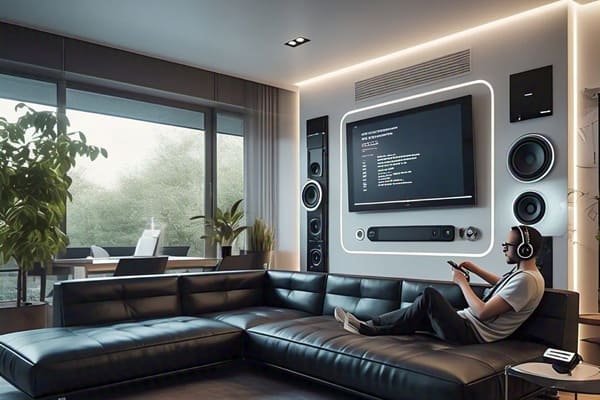
Seamless Personalization and Adaptability
One of the biggest advantages of AI in smart homes is its ability to learn from user behavior and adapt accordingly. AI-powered systems analyze habits, preferences, and routines to customize home settings automatically.
Imagine waking up to your preferred room temperature, lights adjusting to your morning schedule, and coffee brewing just in time—all without lifting a finger. A study by Statista predicts that the smart home market will reach $222 billion by 2028, emphasizing the growing demand for personalized automation.
Enhanced Security with AI-Powered Surveillance
Home security has always been a priority, and AI is making it more reliable than ever. AI-driven surveillance systems can distinguish between regular household members, guests, and potential intruders using facial recognition technology. They also analyze movement patterns to detect suspicious activity and send instant alerts.
According to Markets and Markets, the global AI-based surveillance and security market is expected to grow to $42.4 billion by 2027, highlighting the increasing reliance on smart security solutions.
Energy Efficiency and Cost Savings
AI is playing a crucial role in making homes more energy-efficient, reducing waste, and lowering utility bills.
Smart thermostats, such as those by Nest and Ecobee, use machine learning to adjust temperature settings based on occupancy and external weather conditions.
Smart thermostats can save homeowners up to 10% on heating and cooling costs annually. Similarly, AI-integrated lighting systems ensure lights are only used when needed, further contributing to energy conservation.

Voice-Activated Convenience and Control
Voice assistants like Amazon Alexa, Google Assistant, and Apple’s Siri have already changed the way people interact with their homes. AI continues to refine voice recognition capabilities, enabling more accurate and responsive interactions.
From controlling smart appliances to setting reminders, voice AI makes managing daily tasks effortless.
A report by Juniper Research estimates that by 2025, voice assistants will be in over 75% of U.S. households, demonstrating their growing importance in home automation.
Predictive Maintenance and Appliance Management
AI-powered smart homes go beyond convenience by ensuring appliances function optimally. AI can predict when a device needs maintenance by analyzing performance trends, preventing costly repairs or replacements.
For example, smart refrigerators can detect temperature inconsistencies, while AI-enabled washing machines can suggest the best wash cycles based on load weight and fabric type. Research by McKinsey suggests that predictive maintenance powered by AI could reduce equipment downtime by up to 50%, making homes more efficient and cost-effective.
AI-Integrated Home Entertainment
Entertainment is another area where AI is transforming smart homes. AI-powered recommendation engines analyze viewing and listening habits to curate personalized content, whether it’s movies, music, or gaming.
AI-driven sound systems can also adjust acoustics based on room conditions for a better audio experience.
The global smart entertainment market is expected to grow significantly, with projections reaching $150 billion by 2026, reflecting the increasing demand for AI-enhanced entertainment solutions.
The Road Ahead: A Fully Autonomous Living Experience
The future of AI-driven smart homes extends beyond individual devices to fully integrated ecosystems. AI is expected to create seamless communication between different smart home components, allowing for a completely autonomous living experience.
Imagine a home that detects when you’re feeling unwell and adjusts the lighting, temperature, and sound environment to promote relaxation and recovery. With ongoing advancements in AI, smart homes are set to become more intuitive, predictive, and responsive than ever before.
AI-driven Home Automation is a Transformation
AI-driven home automation is not just an upgrade—it’s a transformation of how people live. With continuous advancements in technology, smart homes are becoming safer, more efficient, and increasingly personalized. It’s a natural tendency to think and imagine what requirements we have and what appliances/items we could buy that could start our journey of an automated home.
As AI continues to evolve, the dream of a fully automated home is rapidly turning into reality, redefining modern living in ways never imagined before.
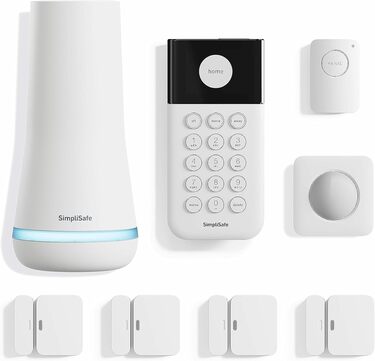
SimpliSafe 8 Piece Wireless Home Security System
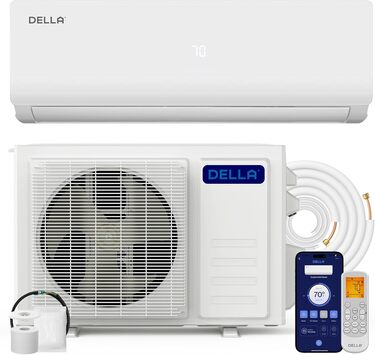
DELLA Versa Series 18000 BTU Wifi Mini Split AC Work with Alexa 19
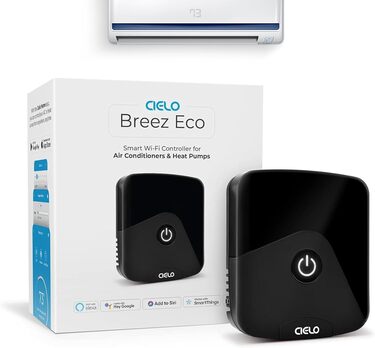
Breez Eco | Smart AC Controller for Mini Split, Window, Portable ACS
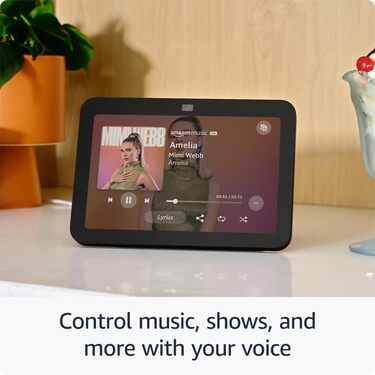
Amazon Echo Show 8




